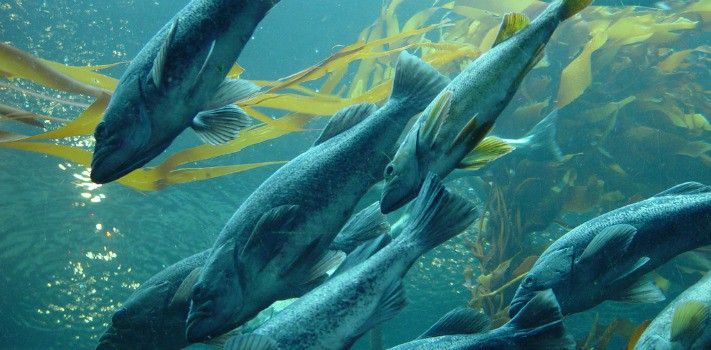Like with farmed land animals, conventionally farmed fish live in crowded and cramped conditions and may suffer from lesions and debilitating injuries. Farmed fish are often fed with wild-caught fish, adding to further problems caused by overfishing. Because of unchecked harvesting and problems with by-catch, 90% of large predatory fish populations have been depleted. Look here to learn more about the issue associated with farmed and wild-caught fish.
Unfortunately, there are no welfare certifications for fish, but there are tools and certifications that offer information about the ecological impacts of fishing and aquaculture. Follow the tips below to find the most sustainably produced fish:
- Print a sustainable fish pocket guide from Seafood Watch (or download their free smartphone app) and use this guide before purchasing fish.
- Find the best guide for your state
- Purchase fish that has the Marine Stewardship Council certification.
- Instead of eating higher on the food chain (tuna and salmon), source your fish from sustainable populations of sardines and other small fish.
Want the taste of fish, but not the welfare and environmental issues that go along with the industry? The following company and recipe offer plant-based “fish” products that stimulate the taste and texture of fish:
Gardein (vegan)
All gardein frozen retail products made after July 1, 2013 are certified kosher (by BC Kosher – a division of the Orthodox Rabbinical Council of BC Canada) with the exception of our chick’n sliders, beefless sliders, and black bean sliders.




